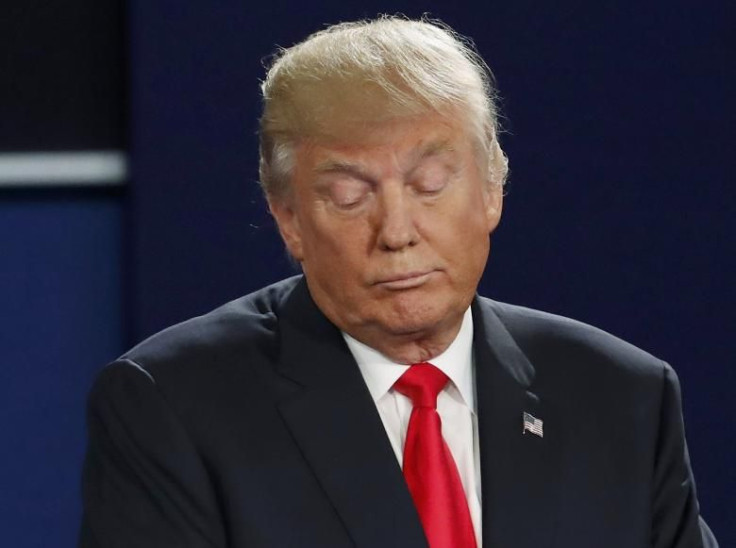Donald Trump Election Aftermath: Top Political Pundits Explain The Republican's Victory Over Hillary Clinton

Opinions and analysis have quickly followed the recent presidential election, with many on both sides of the political spectrum being particularly vocal and bold in explaining how Republican nominee Donald Trump triumphed over Democratic nominee Hillary Clinton on Tuesday.
While the popular vote still isn't decided, Clinton currently has 60,563,316 votes while Trump has 60,123,187 votes, a difference of 440,129 votes, according to data compiled by Cook Political Report. However, Trump had the clear advantage in the electoral college vote, 290 to 228, with Michigan and New Hampshire still not called, though Trump is expected to win Michigan, while Clinton is expected to win New Hampshire.
Trump was able to capture Wisconsin and Pennsylvania, two states that were once considered Democratic strongholds, while holding off Clinton in pivotal swing states Florida and Ohio.
How did the election go the way it did, and what's next? Many top political analysts shared their opinions this week.
Conservative Washington Post columnist and Fox News contributor Charles Krauthammer on Thursday wrote that "Trump spoke to and for a working class squeezed and ruined by rapid technological and economic transformation." In August, Krauthammer had a harsh rebuke of Trump.
"I used to think Trump was an 11-year-old, an undeveloped schoolyard bully. I was off by about 10 years," he said. "His needs are more primitive, an infantile hunger for approval and praise, a craving that can never be satisfied. He lives in a cocoon of solipsism where the world outside himself has value, indeed exists, only insofar as it sustains and inflates him."
On Friday, New York Times columnist David Brooks, a frequent critic of Trump and a conservative in the mold of Edmund Burke and Alexander Hamilton, described Trump's win as "the greatest political shock of our lifetimes," and that Trump "will probably resign or be impeached within a year."
Fred Barnes, executive editor of the conservative Weekly Standard, said that Trump's supporters voted for him despite obvious shortcomings, and suggested he ran an unprecedented campaign.
"In his campaign for the presidency, Trump ignored the normal rules of politics. He talked to the press incessantly. He was dramatically outspent by Clinton, but didn't seem to worry about that. He lost all three debates with Clinton without dragging down his candidacy. He humiliated pollsters by winning in the face of their polls with Clinton in the lead," Barnes wrote.
A ruinous triumph for the GOP https://t.co/ryTIKjlB9d
— George F. Will (@GeorgeWill) November 9, 2016
Trump's lack of specifics--indeed his utter incoherence on policy--could ultimately be our salvation. https://t.co/3ULbGG4KO7
— Max Boot (@MaxBoot) November 9, 2016
Liberal columnists presented varying opinions on Trump's victory and the consequences.
On Wednesday, E.J. Dionne, a Washington Post columnist who espouses mostly mainstream left-leaning thinking, made an effort to point out the demographics of Trump's vote.
"I blame people of my gender, race and class — college-educated white men — for giving Trump his margin," Dionne wrote. "Yes, a class rebellion among less-educated whites was key to his victory. But we cannot forget that a large majority of well-to-do white men chose to vote for a dangerous misogynist who demonized immigrants and people of color."
Nobel-Prize winning economist and New York Times columnist Paul Krugman called the Trump campaign "unprecedented in dishonesty."
"Trumpist policies won’t help the people who voted for Donald Trump — in fact, his supporters will end up much worse off," Krugman wrote on Friday. "But this story will probably unfold gradually. Political opponents of the new regime certainly shouldn’t count on any near-term moment of obvious vindication."
Krugman had previously stated that under Trump there will probably be a global recession, "with no end in sight."
Truthdig publisher Robert Scheer, an outspoken critic of Bill and Hillary Clinton, pointed out that Sen. Bernie Sanders of Vermont had a better chance.
"What you have is a defeat of elitism," Scheer wrote. "Clinton’s arrogance was on full display with the revelation of her speeches cozying up to Goldman Sachs—the bank that caused this misery more than any other—and the irony of this is not lost on the people who are hurting and can’t pay their bills. This is a victory for a neofascist populism—scapegoating immigrants and Muslims—and if Bernie Sanders had been the Democrats’ candidate, I feel confident he would have won. We were denied the opportunity of a confrontation between a progressive populist, represented by Sanders, and a neofascist populist."
"How we ended up with our own Berlusconi" My Column https://t.co/XrjDUiEUWu
— Clarence Page (@cptime) November 10, 2016
Trump is untested, untethered and dangerous -- so we should pray for his success. If he fails, we get chaos https://t.co/O935st8tqa
— Doyle McManus (@DoyleMcManus) November 9, 2016
© Copyright IBTimes 2025. All rights reserved.






















